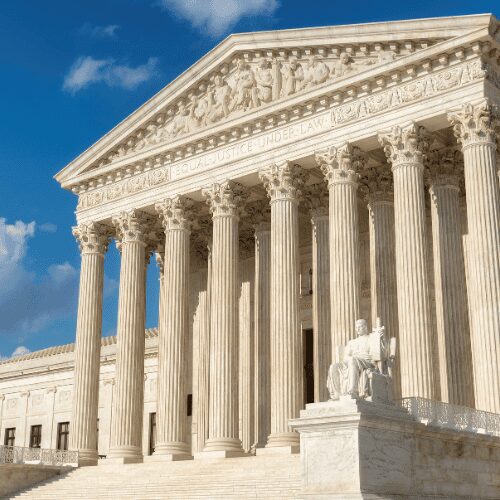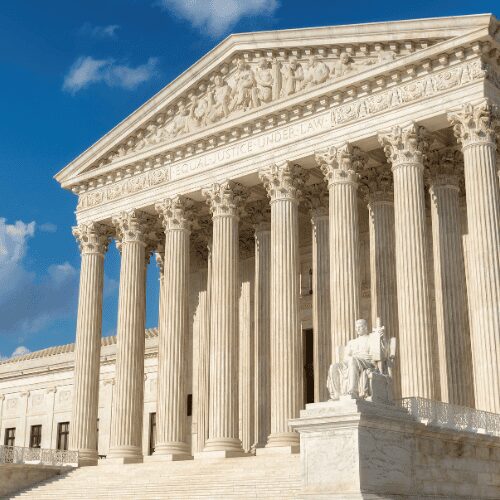
The Supreme Court could decide the future of content moderation of two state laws that restrict the ways that social media companies can modify the content that they post that they post on their websites.
In their oral arguments on Monday, the justices wrestled with a complicated set of issues that could change the face of the web in various ways, from social networks such as Facebook or TikTok to apps such as Yelp or Etsy.
In October this year, in October, the Supreme Court decided to hear two separate cases one that was filed in Florida (Moody v. NetChoice, LLC) as well as one in Texas (NetChoice LLC v. Paxton). In both cases, which were made the law of Republican Governors, the brand new law in the state directed the social media firms to stop taking down certain types of content.
Florida’s Senate Bill 7072 prevents social media businesses from prohibiting political candidates or restricting their content. For instance, in Texas, House Bill 20 made it clear to social media firms that they cannot remove or demonetize content based on what they consider to be the “viewpoint represented in the user’s expression.” In Florida, the federal appeals court generally decided in favor of tech firms, but on the other hand, in Texas, an appeals court was in favor of the state.
The two laws were designed by Republican lawmakers to penalize social media businesses for their perceived anti-conservative bias. The allegations haven’t been proven by studies, but those who use conservative social media are in a significant way exposed to misinformation from the political spectrum that could lead to the perception of a difference in ideology in the tech’s content moderation choices.
There are a lot of laws to consider. Florida laws as well as the Texas laws are currently caught together in a tangled collection of stale legal precedents mostly based upon rulings that were made long before the days when words such as “tweet” and “livestream” were commonplace words. Since the laws that govern the current internet are old-fashioned, tech companies and their critics are all looking to be clear — even though, like they’ve seen the Supreme Court demonstrated last year in a set of cases involving social media it is possible that they don’t get the message.
On Monday, the justices on each side of the spectrum were doubtful about the two state laws. In their oral arguments, Justice Sonia sotomayor declared the case “odd,” warning that the broad nature of these laws could cause unexpected consequences.
“It seems like your law covers just about every social media platform on the Internet, and we have amici who are not traditional social media platforms, like smartphones, and others who have submitted amici briefs, telling them that readings of this law could cover them,” Sotomayor stated, referring to the Florida law.
“This is so vast, it’s covering the majority of things. However, the only thing I’ve learned about the Internet is that its range is endless.” Sotomayor pointed to Etsy, the marketplace on the internet Etsy as an alternative website which could be impacted negatively by laws enacted by states to limit the things that social media companies are allowed to do.
In his address to Florida Attorney General Henry Whitaker, Justice Brett Kavanaugh spoke of his opinion on the First Amendment — but not in a manner that is which was sympathetic to the state’s position.
“You stated that the intent for the First Amendment is to prevent “suppression of speech,” Kavanaugh stated. “And you didn’t mention what I believe to be three important terms that are in the First Amendment or to describe the First Amendment, “by the government.”
However, Justice Neil Gorsuch, who seemed to be more supportive of the critiques of social media, referred at Section 230, a longstanding law that protects online companies’ decision-making on content moderation and pointing out that it “preempts” the state limits on moderation of social media.
Some justices appeared to be in favor of the technology industry. Justices Clarence Thomas and Samuel Alito seemed to consider the state’s arguments more convincing than their colleagues, Alito on one occasion questioning whether the concept of content moderating is “anything more than a euphemism for censorship.”
Monday’s hearing offered some clarification on the place that most justices appear to be right now however, anything could happen, including nothing. A handful of justices such as Justices Sotomayor, Gorsuch, Barrett and Thomas expressed doubts about how the cases were brought before them to beginning.
“It’s called a facial challenge, because on the face of the law a challenger alleges what the legislature has done is unconstitutional,” Paul Barrett, NYU adjunct law professor and the Deputy Director of NYU Stern’s Center for Business and Human Rights and Deputy Director of NYU Stern’s Center for Business and Human Rights, told TechCrunch. “It’s an instance in which parties or group, such as trade associations representing industry, goes to court even before the law comes into effect. They tell the judge in the trial, ‘this law is not constitutional regardless of the method of application.’
“They requested the judge at this point for an injunction saying that the law won’t take effect. This way there’s no amount of data and facts as well as experience, etc and there’s no evidence that permits appeals courts the opportunity to look at how the law operates in the real world.”
It is possible that the Supreme Court could issue a definitive decision anytime between now and the time that the term of the court ends in June. The court could decide to not decide on the issue that are at hand and decide to return the case the lower court for a complete trial, which could last for several years. “Supreme Court cases can fizzle in this way, much to the frustration in most cases to other parties,” Barrett stated.
Whatever the case, the top justice in the world must confront the digital age head-on at some point. A lot of relevant legal precedents are pertaining to cable TV, newspapers, or utility companies, not online businesses that have millions, or billions, of users.
“It’s clear that the Supreme Court needs to update its First Amendment jurisprudence to take into account this vast technological change,” Barrett stated. “… It is the Supreme Court often lags behind the rest of society when it comes to such issues and it’s now the right time to tackle this issue.”

